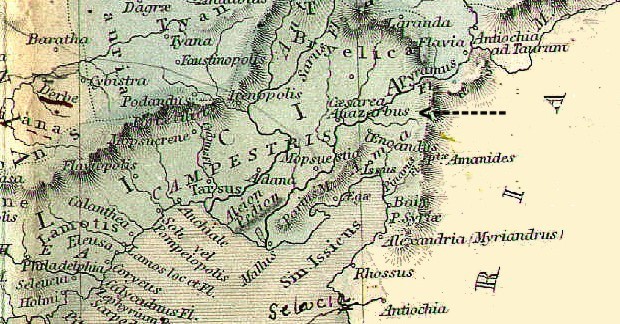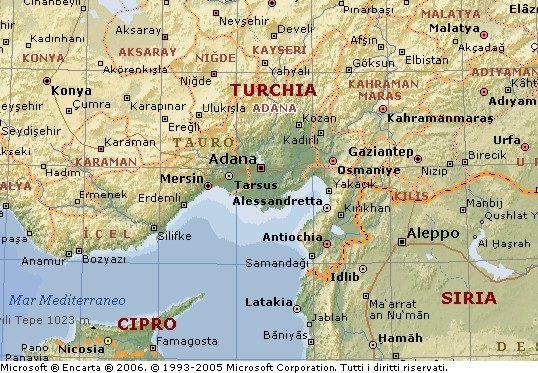Lessico
Oppiano di Anazarbo
o di Corico
Poeta didascalico del II secolo dC di Anazarbo – o di Corico - in Cilicia (Asia Minore), autore di Halieutica (La pesca), poema in 5 libri in esametri dedicato a Marco Aurelio (Roma 121-Vindobona o Sirmio 180) e a suo figlio Commodo (Lanuvio 161-Roma 192).

Anazarbo – in greco Anázarbos: antica città dell'Asia Minore, nella Cilicia, fondata verso il sec. I aC e le cui rovine si trovano 50 km a NE della città turca di Adana. Fiorente centro in epoca bizantina col nome di Giustinianopoli, fu nei sec. VII e VIII saccheggiata più volte e infine occupata dagli Arabi, dai quali era chiamata Ain Zarba. Gli Armeni, che se ne impadronirono all'inizio del sec. XII, la elevarono per un breve periodo al rango di capitale dello Stato di Cilicia. Dei monumenti romani restano l'anfiteatro, il teatro, lo stadio, le mura con un arco trionfale a tre fornici, un acquedotto. Di età bizantina restano alcune chiese (chiesa degli Apostoli).

Oppian or Oppianus (in Greek, Ὀππιανός) was the name of the authors of two (or three) didactic poems in Greek hexameters, formerly identified, but now generally regarded as two different persons.
Oppian of Corycus (or Anazarbus) in Cilicia, who flourished in the reign of Marcus Aurelius (121-180). According to an anonymous biographer, his father, having incurred the displeasure of Lucius Verus, the colleague of Marcus Aurelius, by neglecting to pay his respects to him when he visited the town, was banished to Malta. Oppian, who had accompanied his father into exile, returned after the death of Verus (169) and went on a visit to Rome. Here he presented his poems to Marcus Aurelius, who was so pleased with them that he gave the author a piece of gold for each line, took him into favor and pardoned his father.
Oppian subsequently returned to his native country, but died of the plague shortly afterwards, at the early age of thirty. His contemporaries erected a statue in his honor, with an inscription which is still extant, containing a lament for his premature death and a eulogy of his precocious genius. His poem on fishing (Halieutica), of about 3500 lines, dedicated to Marcus Aurelius and his son Commodus, is still extant.